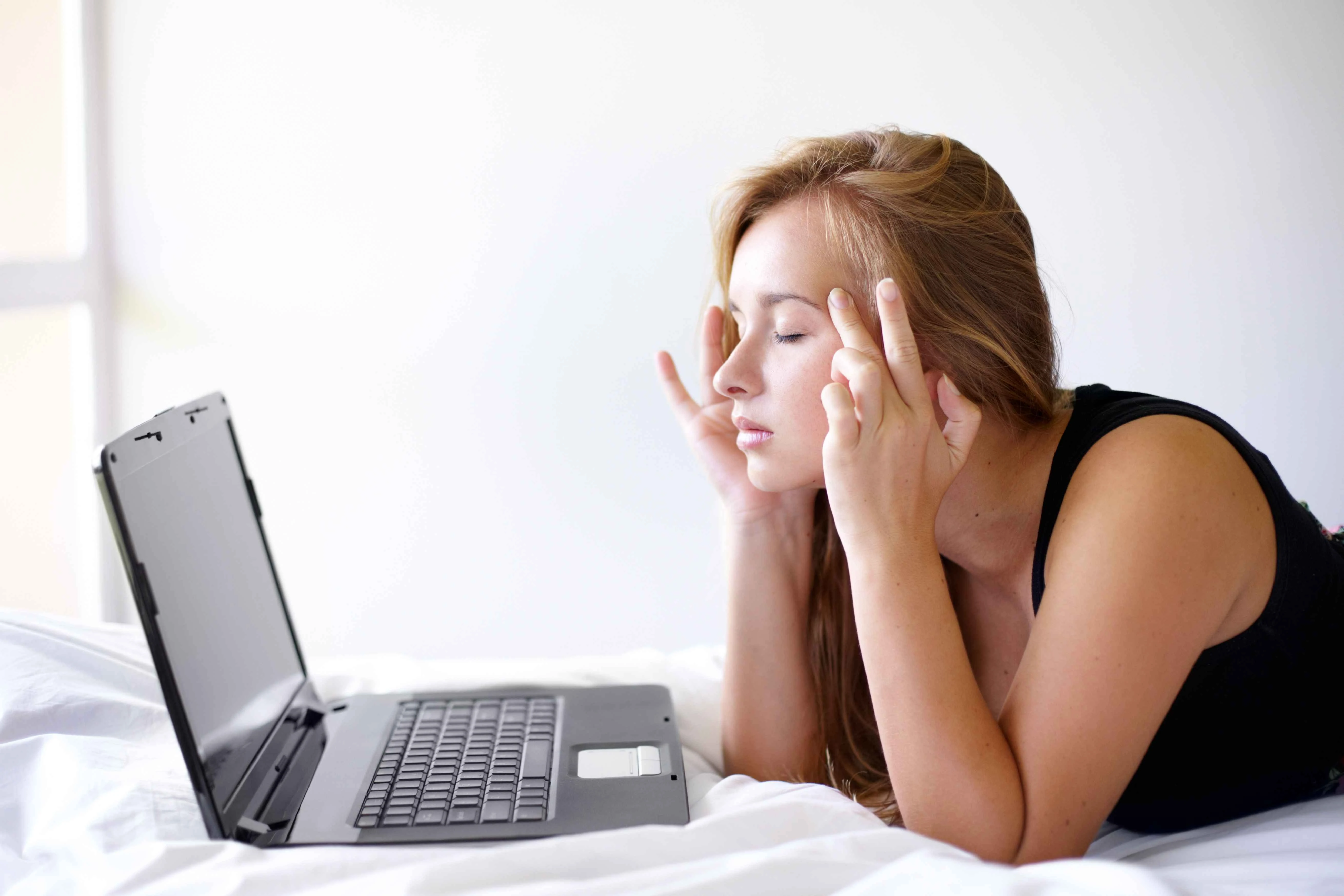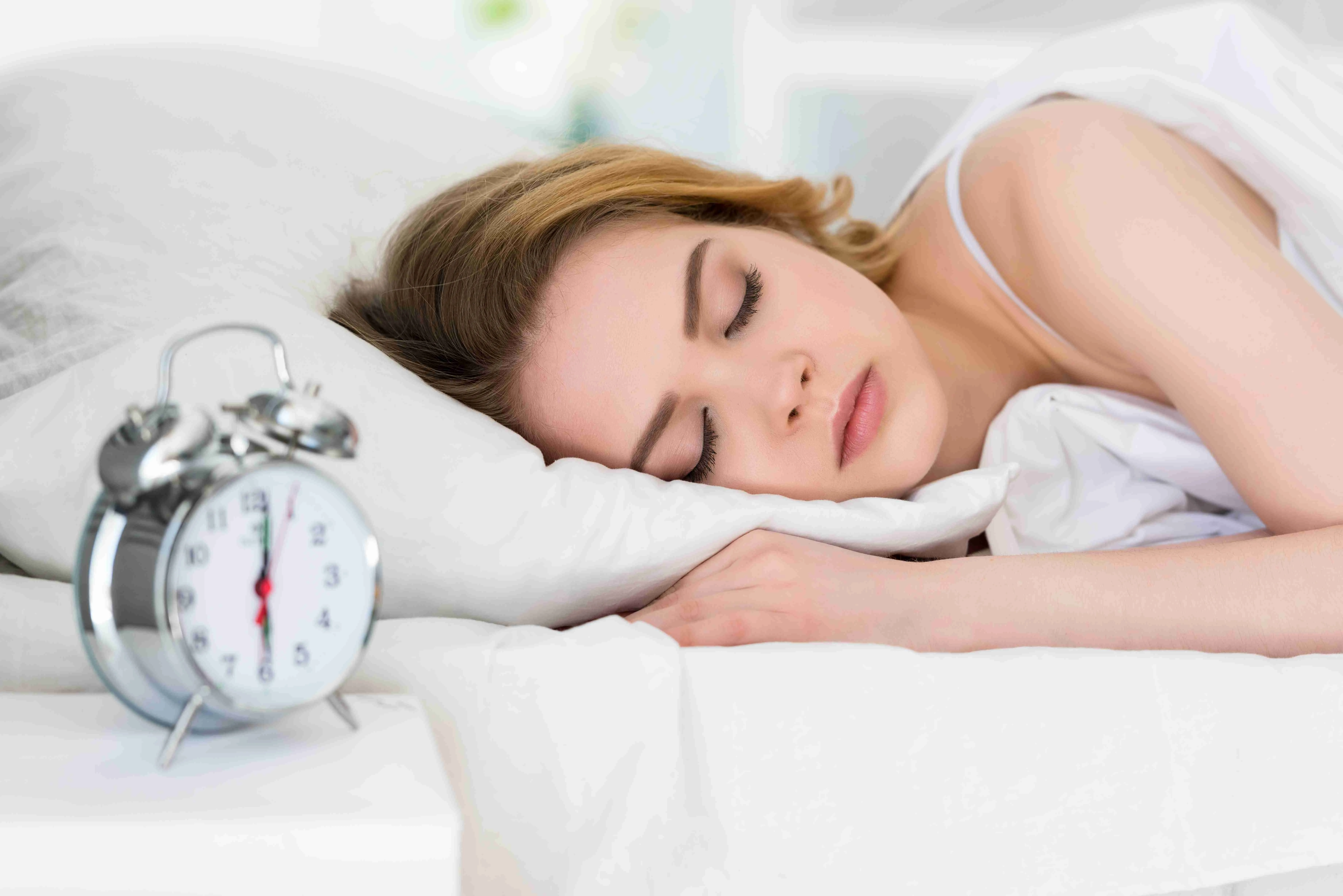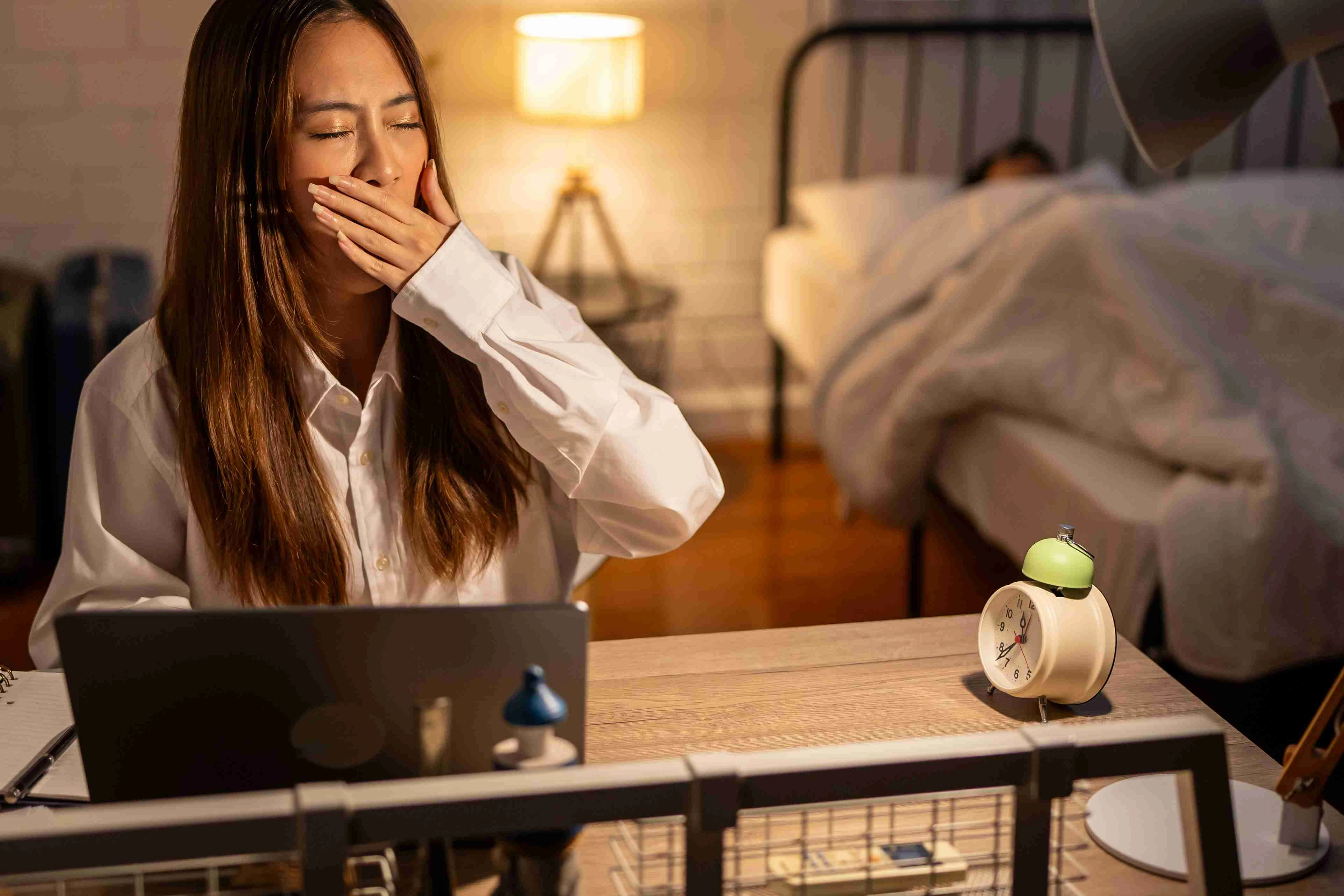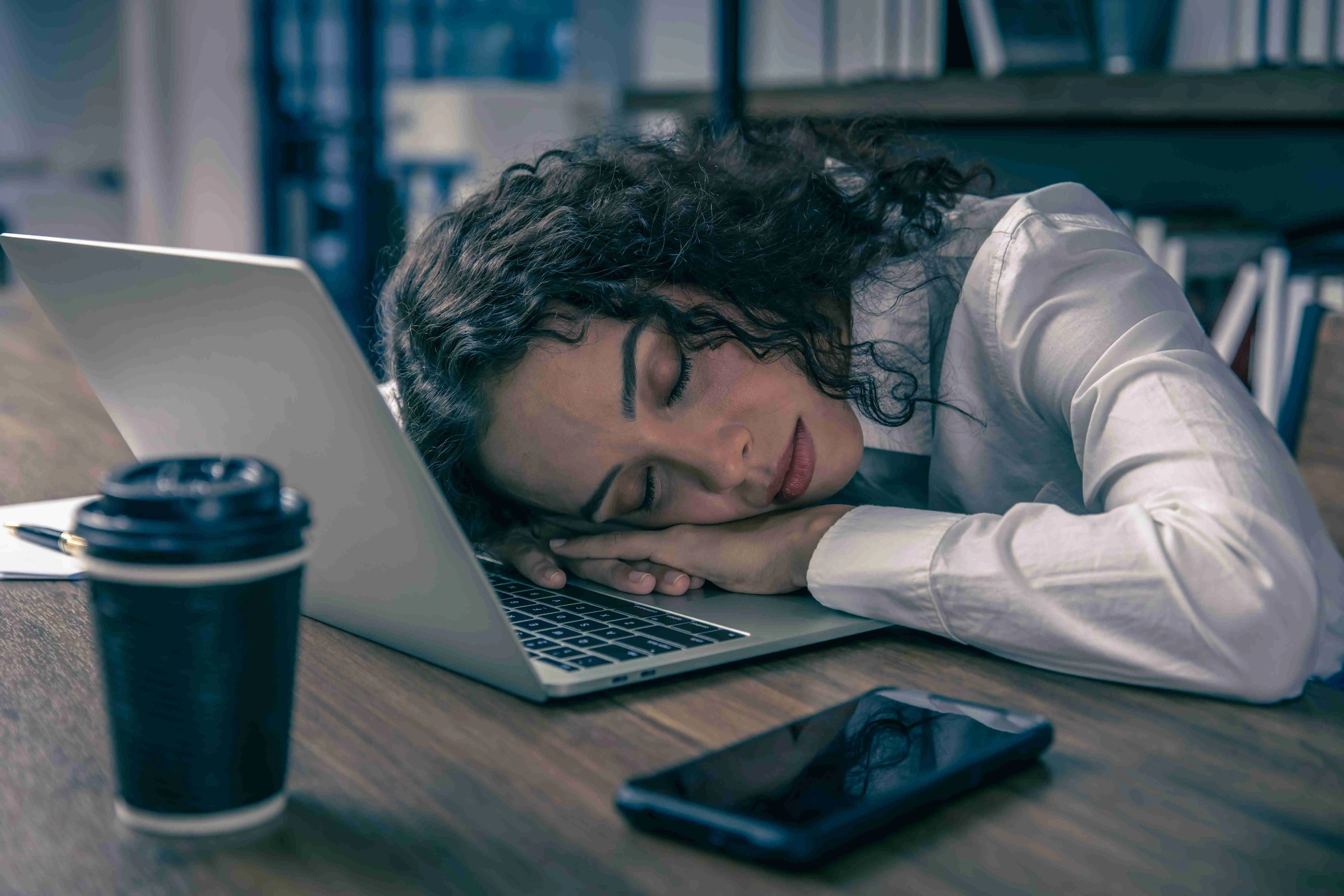Sleep deprivation presents a real issue for so many individuals, especially now with all the technological advances and busy schedules.
People are struggling to find time to get sufficient sleep, disregarding the fact that consistently not getting enough sleep might have a detrimental impact on our mental and physical health, and it will affect all aspects of our lives, including our work life, relationships, and mood.
What is sleep deprivation?
Sleep deprivation is defined as the condition of not getting enough sleep or having poor-quality sleep. It occurs when an individual consistently fails to get the recommended amount of sleep, which is typically around 7-9 hours for adults.
Importance of Sleep for Health
Sleep is an essential aspect of maintaining good health. Not only does sleep allow our bodies to rest and recharge, but it also plays a crucial role in various bodily functions. Adequate sleep is important for our immune system, as it helps to strengthen our body's defenses against illnesses and infections.
Additionally, sleep is vital for proper brain function and cognitive performance. It improves memory, concentration, and problem-solving skills, allowing us to perform at our best in daily activities. Therefore, prioritizing quality sleep is crucial for overall health and well-being.
Causes of Sleep Deprivation

Sleep deprivation is becoming more and more common in this day and age due to many factors, whether it’s lifestyle factors, mental health conditions, or even environmental factors that interfere with our regular wake-sleep cycle and eventually lead to sleep deprivation.
Lifestyle Factors
- Hectic Schedules: Many individuals find themselves juggling multiple responsibilities, such as work, family, and social commitments. This often leads to a lack of time for adequate sleep, as people prioritize other activities over rest, which could potentially make them suffer from work shift disorder.
- Excessive Use of Electronic Devices: The blue light emitted by these devices can interfere with the body's natural sleep-wake cycle, making it difficult to fall asleep and stay asleep. Additionally, the constant stimulation from social media, emails, and notifications can keep individuals awake late into the night, further exacerbating sleep deprivation.
- Excessive Caffeine Consumption and Poor Dietary Habits: Many individuals rely on caffeine to stay awake and alert throughout the day, but consuming it too close to bedtime can interfere with falling asleep. Similarly, consuming heavy meals or foods high in sugar before bed can cause discomfort and make it difficult to achieve restful sleep.
Medical Conditions and Disorders
- Sleep Apnea: This condition occurs when an individual's airway becomes partially or completely blocked during sleep, leading to pauses in breathing and disrupted sleep. People with sleep apnea often wake up multiple times throughout the night, preventing them from entering into deep, restorative sleep.
- Insomnia: Insomnia is characterized by difficulty falling asleep or staying asleep, despite having the opportunity to do so. Stress, anxiety, depression, and specific medications are just a few of the factors that can cause insomnia.
- Restless leg syndrome (RLS): Restless leg syndrome (RLS) is a neurological disorder that causes unpleasant sensations in the legs, often described as aching, throbbing, or itching. These sensations usually occur during periods of inactivity or at night, making it difficult for individuals with RLS to fall asleep or stay asleep.
Environmental Factors
- Noise: Excessive noise from traffic, construction, or even loud neighbors can disrupt an individual's sleep. Noise acts as a disturbance, preventing the person from falling asleep or waking them up during the night. This constant interruption can lead to a lack of sufficient sleep, resulting in sleep deprivation.
- Quality of the Mattress and Pillows: An uncomfortable mattress or pillows that do not provide adequate support can lead to discomfort and pain, making it hard to fall asleep or stay asleep throughout the night. Investing in a high-quality mattress and pillows that offer proper support can greatly improve sleep quality and reduce the risk of sleep deprivation. Check out the best mattresses of 2024 and the best pillows of 2024.
- Temperature: Extreme temperatures, whether too hot or too cold, can make it challenging to achieve a comfortable and restful sleep. When the room is too hot, it can cause sweating and discomfort, making it difficult to fall asleep. On the other hand, if the room is too cold, it can cause shivering and discomfort, also interfering with sleep.
Symptoms of Sleep Deprivation
Sleep deprivation can have a significant impact on our overall well-being, as the symptoms can extend to our physical and mental health, making it very important to recognize the symptoms of sleep deprivation and take steps to address them.
Daytime Sleepiness
When we do not get enough sleep, we tend to feel fatigued and drowsy throughout the day, making it difficult to stay alert and focused, which is one of the signs of sleep deprivation. This can lower productivity at work or school and increase accident and injury risk.
Daytime sleepiness can also impair our cognitive functions, leading to difficulties in making decisions and solving problems.
Irritability and Mood Changes
Lack of sleep can make us feel more easily agitated and impatient, causing us to snap at others or react negatively to minor inconveniences. This irritability can strain our relationships with family, friends, and coworkers, as we may become more prone to arguments and conflicts.
In addition, mood changes are one of the chronic sleep deprivation symptoms. We may experience mood swings, feeling overly emotional, or even depressed.
Cognitive Impairments
- Lack of Focus: When a person does not get enough sleep, their ability to concentrate and pay attention decreases. This can make it difficult to stay on task and complete work efficiently. In addition, sleep deprivation can also lead to difficulty in making decisions and problem-solving, as the brain is not functioning at its optimal level.
- Slowed Reactions: When a person is sleep-deprived, their reaction time becomes slower, which can be dangerous in certain situations. For example, if someone is driving a car while sleep-deprived, their ability to react quickly to unexpected events on the road may be compromised. Slowed reactions can also affect performance in sports or other physical activities, as the body may not be able to respond as quickly as it should.
- Impulsive Behavior: When a person is tired, they may be more likely to engage in impulsive behaviors without considering the consequences. This can include things like making impulsive purchases, eating unhealthy foods, or engaging in risky behaviors.
Physical Symptoms
- Headaches: When we don't get enough sleep, our brain is not able to recharge properly, leading to increased tension and pressure in the head. These headaches can vary in intensity and duration, but they can be quite debilitating and affect our ability to focus and concentrate throughout the day.
- Hand Tremors: Lack of sleep symptoms can include muscle fatigue, resulting in involuntary shaking or trembling in our hands. This can make simple tasks such as holding a cup or typing on a keyboard challenging and frustrating.
- Microsleeps: These are brief episodes of sleep that can last for just a few seconds or up to a minute; they're one of the side effects of sleep deprivation. During a microsleep, our brain essentially shuts down momentarily, causing us to lose awareness of our surroundings. This can be extremely dangerous, especially when driving or operating heavy machinery.
Mental Health Impacts
- Anxiety: When we are sleep-deprived, our body's stress response system becomes overactive, leading to increased levels of anxiety. This can manifest as feelings of unease, restlessness, and constant worry. Sleep deprivation can also exacerbate existing anxiety disorders, making it even more important to prioritize good sleep habits.
- Depression: Lack of sleep effects include the disruption of the delicate balance of chemicals in the brain, leading to feelings of sadness, hopelessness, and a lack of motivation. Individuals who consistently do not get enough sleep may experience an increase in symptoms of depression, making it difficult to cope with daily life.
- Declining Mental Health: Declining mental health is another symptom that can result from sleep deprivation. When the brain does not receive enough restorative sleep, cognitive functions such as memory, attention, and decision-making are affected. This can lead to difficulties in concentrating, decreased productivity, and an overall decline in mental sharpness.
Effects of Sleep Deprivation
Sleep deprivation is a common problem in today's fast-paced society, and it can have serious effects on physical and mental health, which makes it crucial to address sleep deprivation before its effects get exasperated and start affecting our overall well-being.
Physical Health Risks
- Type 2 Diabetes: Lack of sleep can disrupt the body's ability to regulate blood sugar levels, leading to insulin resistance and an increased risk of developing diabetes, which means that individuals who don’t get consistently quality sleep are at a higher risk of developing type 2 diabetes compared to those who get sufficient sleep.
- High Blood Pressure: Lack of quality sleep has been found to raise blood pressure levels, which can increase the risk of developing hypertension. High blood pressure is a major risk factor for heart disease, stroke, and other cardiovascular problems.
- Heart Attack: Individuals who reported getting less than six hours of sleep per night had a significantly higher risk of experiencing a heart attack compared to those who slept seven to eight hours per night.
- Obesity: Sleep deprivation can disrupt the body's hormonal balance, leading to increased appetite and cravings for high-calorie foods. Additionally, sleep deprivation can affect the body's metabolism, making it more difficult to burn calories efficiently.
What is the average daily amount of sleep needed for each age group?

| Age Group | Average Daily Amount of Sleep Needed |
|---|---|
| Infants (4 to 12 months old) | 12-16 hours (including naps) |
| Young children (1 to 5 years old) | 10-13 hours (including naps) |
| School-aged children (6 to 12 years old) | 9-12 hours |
| Teenagers (13 to 18 years old): | 8-10 hours |
| Adults (18 years and up): | 7 hours or more |
Sleep Deprivation Treatments

Sleep deprivation can have a significant impact on our overall health and well-being. It can affect our mood, cognitive function, and even our physical health. Fortunately, there are several treatments available to help combat sleep deprivation and promote better quality sleep.
Lifestyle changes
- Consistent Sleeping Schedule: This means going to bed and waking up at the same time every day, even on weekends. By maintaining a regular sleep schedule, our bodies can establish a natural sleep-wake cycle, making it easier to fall asleep and wake up feeling refreshed.
- Relaxing Bedtime Routine: This involves creating a calm and soothing environment before going to bed. Some common practices include reading a book, taking a warm bath, or practicing relaxation techniques.
- Exercising: Engaging in physical activity, such as jogging, swimming, or cycling, can promote better sleep by reducing stress levels and increasing endorphin production. Exercise also helps regulate the body's internal clock, making it easier for individuals to fall asleep and wake up at consistent times.
- Limiting Alcohol and Caffeine: While alcohol may initially make individuals feel drowsy, it can disrupt the sleep cycle and result in poor-quality sleep. Therefore, it is advisable to avoid alcohol or consume it in moderation, especially close to bedtime. Similarly, caffeine is a stimulant that can interfere with the ability to fall asleep and stay asleep.
Check out how to create the ideal bedtime routine.
Medications
Medications such as benzodiazepines or non-benzodiazepine hypnotics work by targeting certain neurotransmitters in the brain to induce sleep. However, it's crucial to remember that you should only use these medications under the supervision of a healthcare professional due to their potential side effects and habit-forming nature.
Breathing Techniques
Techniques such as deep breathing, progressive muscle relaxation, and mindfulness meditation can help calm the mind and relax the body, making it easier to fall asleep and stay asleep throughout the night. These techniques focus on slowing down and regulating the breath, which in turn helps to reduce stress and anxiety that may be contributing to sleep deprivation.
Incorporating these breathing techniques into a daily routine can not only improve sleep quality but also promote overall relaxation and well-being.
FAQs
How common is sleep deprivation?
Sleep deprivation is a prevalent issue that affects a significant portion of the population. Approximately 35% of adults do not get the recommended seven to nine hours of sleep per night. Various factors, such as work-related stress, lifestyle choices, and medical conditions, can contribute to this lack of sleep.
What is the difference between sleep deprivation and insomnia?
Sleep deprivation refers to the state of not getting enough sleep, whether it is due to lifestyle choices, work obligations, or other external factors. It is a result of not allowing oneself enough time for adequate sleep. On the other hand, insomnia is a sleep disorder characterized by difficulty falling asleep, staying asleep, or both.
How is sleep deprivation diagnosed?
To diagnose sleep deprivation, healthcare professionals typically start by conducting a thorough medical history and physical examination. They may ask about the individual's sleep patterns, any underlying medical conditions, and any medications they are taking. Additionally, doctors may use various diagnostic tools, such as sleep questionnaires and sleep diaries, to gather more information about the person's sleep habits.
Can you die from sleep deprivation?
While it is unlikely to directly cause death, chronic sleep deprivation can lead to several health issues that may eventually contribute to a shortened lifespan. Prolonged lack of sleep can weaken the immune system, increase the risk of developing chronic conditions such as heart disease and diabetes, and impair cognitive function. Additionally, sleep deprivation has been linked to an increased risk of accidents, as it affects our ability to concentrate and react quickly.
Conclusion
While sleep deprivation is very common, we can’t ignore the fact that it has a major negative impact on our day-to-day lives, and as much as it’s hard now to get enough sleep for your body and mind to function optimally, it’s crucial to aim for 7 or more hours of sleep as an adult to avoid all the negative effects and health hazards that you might face if you’re consistently not getting your average daily amount of sleep.
Dom Abraham
As the lead content writer at Sleepiverse. Dom pours his heart into writing mattress reviews, bedding product reviews, and medically-reviewed health articles. Dom is from Portugal and likes to spend his free time writing on the beach as it gives him a sense of comfort. Aside from writing mattress reviews in front of the soothing beach view, Dom likes to experiment with new amazing food ideas.


